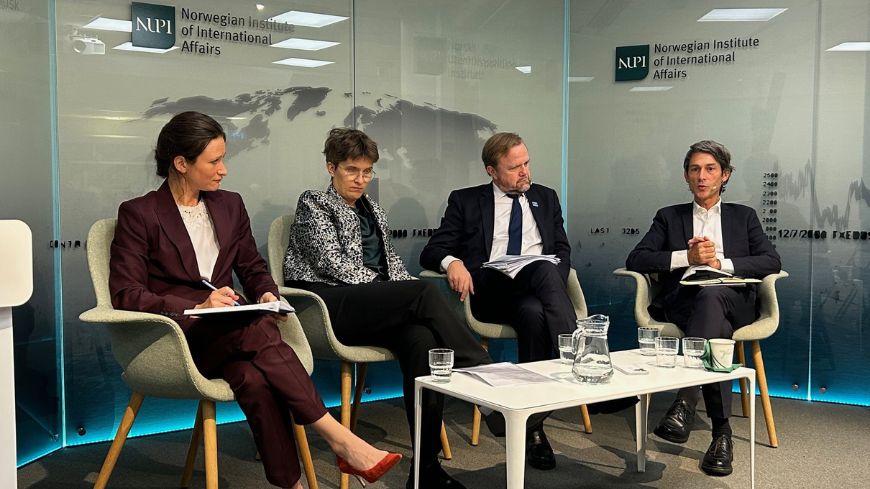Deputy Secretary General Bjorn Berge has taken part in a lively and informative seminar on “How to ensure democratic resilience in Europe”, organised by the Norwegian Institute of International Affairs in Oslo, Norway.
Other speakers included Norwegian Deputy Minister of Foreign Affairs Maria Varteressian, German Minister of State for Europe Anna Lührmann, and NUPI Research Professor Christophe Hillion. Speakers exchanged thoughts on the way in which the challenges to European democracy and security have evolved and are no longer simply external to Europe, but now also come from within. The dangers of disinformation and hybrid warfare were at the forefront of panellists’ concerns, set against the backdrop of extreme populism, and nationalism, and the rise of anti-rights movements, along with attacks on democratic institutions and the threat of corruption and loss of judicial independence.
As well as discussion of the problems, there was an exchange of views on how European governments and international organisations should respond in order to maintain Europeans’ confidence in their democratic institutions, including use of the Council of Europe’s Reykjavik Principles of Democracy. There were also ideas on how current mechanisms might be used more effectively – and strong agreement on the need to work together.
Deputy Secretary General Bjorn Berge said:
“The Council of Europe covers 46 countries, and our values and standards are the first line of Europe’s defence against attacks on democracy. Our work to ensure freedom of expression, assembly and association are vital. The same is true for democratic education and our support for Ukraine and more. Looking further ahead, a Europe-wide Action Plan for Democratic Regeneration will be an important step forward. Certainly, we must all work together.”


